
Natural Volcanic Pumice: Lightweight & Versatile Stone
Unlocking Industrial Potential: The Superiority of Volcanic Pumice in Modern Engineering
In the realm of advanced industrial materials, volcanic pumice stands out as a material of exceptional utility, renowned for its unique combination of lightness, porosity, thermal stability, and chemical inertness. This naturally occurring amorphous volcanic glass, characterized by its highly vesicular texture, is formed during explosive volcanic eruptions, leading to rapid cooling and depressurization. Its inherent properties make it an indispensable asset across a diverse array of sectors, from construction and agriculture to filtration and high-temperature industrial applications. The micro-cellular structure of pumice contributes to its excellent insulating capabilities and high surface area, features that are critically leveraged in specialized products such as explosion-proof components designed for extreme environments. Our focus today centers on how this remarkable mineral is transformed into highly engineered solutions, particularly exemplified by our "Explosion-proof volcanic stone for barbecue stove wall hanging," a testament to the material's adaptability and our advanced manufacturing prowess. Understanding the foundational characteristics of volcanic stone is paramount to appreciating its vast industrial significance and the technical advantages it brings to demanding applications where safety, durability, and performance are non-negotiable criteria for B2B decision-makers and technical procurement specialists.
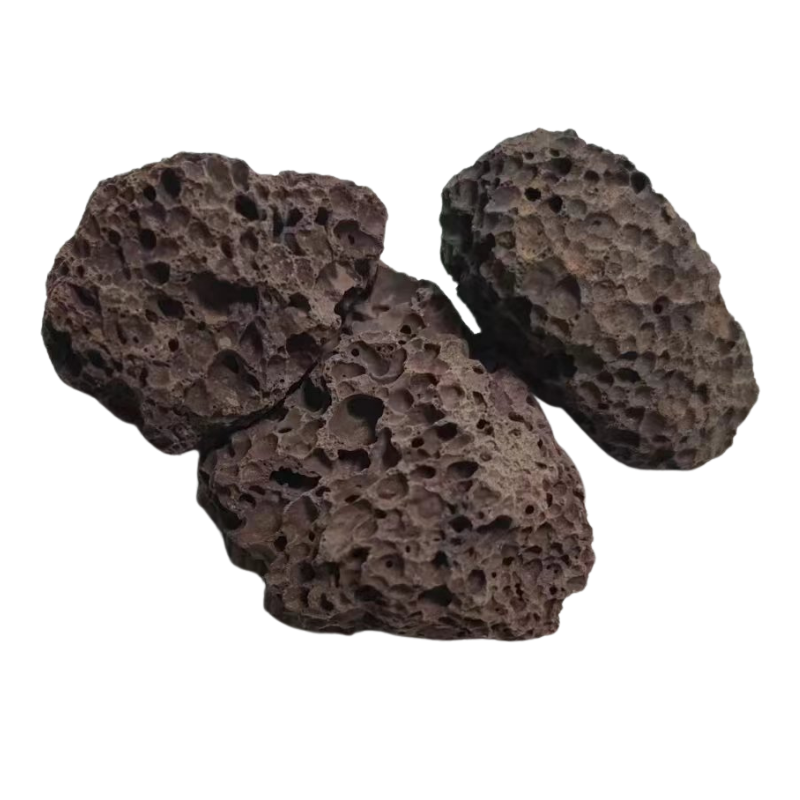
The distinctive qualities of volcanic pumice, including its low specific gravity, superior thermal insulation, and exceptional resistance to high temperatures and chemical degradation, position it as a preferred material over conventional alternatives. Unlike denser materials, floating pumice stone offers a lightweight solution that reduces structural load while maintaining robust performance under thermal stress. This balance of properties is particularly crucial in applications requiring both energy efficiency and a high degree of safety, such as in industrial furnaces, thermal barriers, and specialized heating elements. Its naturally occurring inorganic composition ensures it does not decompose or release harmful substances at elevated temperatures, making it an environmentally benign and safe material choice. Furthermore, the inherent fire-resistant nature of volcanic pumice is a critical safety feature, mitigating risks in high-temperature operating environments. Our engineered volcanic stone products are designed to meet stringent industry demands, offering solutions that not only perform but also contribute to operational efficiency and safety. The ability of pumice to withstand thermal shock and maintain structural integrity under prolonged heat exposure is a key differentiator, providing engineers and product developers with confidence in its long-term reliability for critical infrastructure and consumer-facing applications like advanced barbecue systems.
The Meticulous Crafting Process of Advanced Volcanic Stone Products
The transformation of raw volcanic pumice into high-performance industrial components involves a sophisticated multi-stage manufacturing process, beginning with the meticulous sourcing and selection of premium quality raw materials. Our process for the "Explosion-proof volcanic stone for barbecue stove wall hanging" exemplifies this commitment to precision and quality. Initially, large aggregates of volcanic stone are carefully crushed and screened to achieve precise particle size distributions, which is crucial for controlling the final product's porosity, density, and thermal properties. Following this, the material undergoes a specialized agglomeration or molding phase, where it is often combined with high-temperature binders. Depending on the desired end-product characteristics, various techniques such as pressing or casting are employed to form the green body. For products requiring exceptional strength and thermal stability, a high-temperature firing or sintering process is critical. This step enhances the mechanical integrity and crystalline structure, significantly increasing the material's resistance to extreme heat and wear. The precise control over temperature curves and atmospheric conditions during sintering directly impacts the product's performance metrics, ensuring a uniform and robust final product.
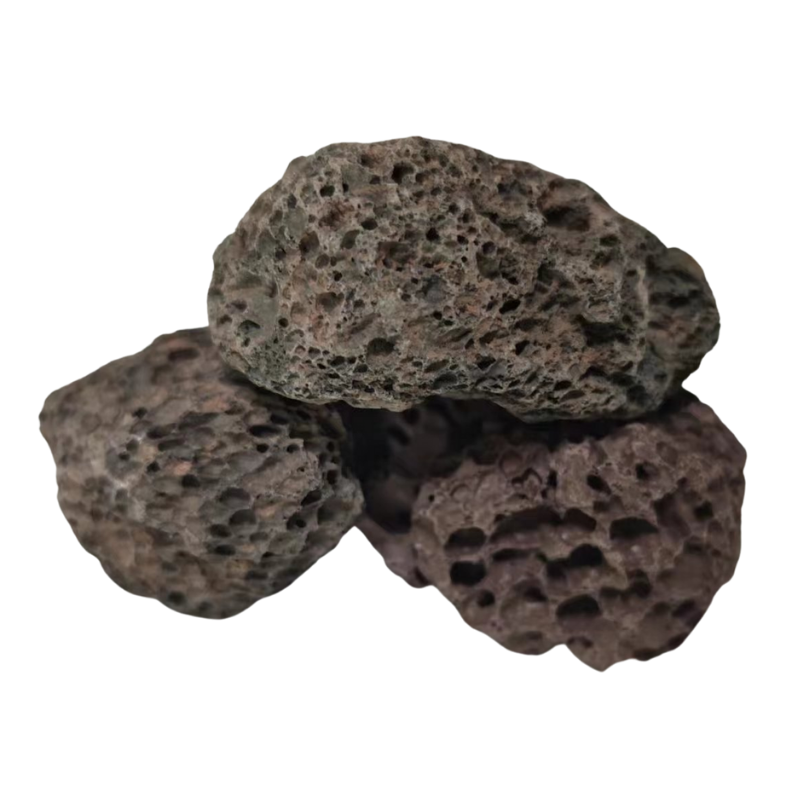
Post-sintering, advanced CNC machining and finishing operations are performed to achieve the precise dimensions and intricate geometries required for specific industrial applications, ensuring perfect fit and optimal functionality. Each stage is underpinned by rigorous quality control and adheres strictly to international detection standards such as ISO 9001 for quality management systems and relevant ASTM or ANSI standards for material properties and performance. These standards guarantee that every batch of volcanic pumice products meets or exceeds industry benchmarks for material composition, structural integrity, and thermal resistance. The typical service life of our engineered volcanic stone products, especially those designed for high-temperature and corrosive environments, extends significantly beyond that of conventional materials, often spanning several decades with minimal degradation. This extended lifespan translates into reduced maintenance costs and fewer operational downtimes for industries like petrochemical, metallurgy, and water supply and drainage systems, where reliability is paramount. In typical application scenarios, such as the wall hanging for a barbecue stove, the exceptional thermal insulation properties contribute to significant energy savings by efficiently retaining heat, while its natural inertness provides unparalleled corrosion resistance against combustion by-products and environmental factors, showcasing a distinct advantage over metal or ceramic alternatives.
Technical Specifications and Performance Metrics of Industrial Pumice Solutions
The efficacy of volcanic pumice in demanding industrial contexts is underscored by its robust technical parameters. A deep understanding of these specifications is crucial for engineers and purchasing professionals evaluating materials for critical applications. For instance, the specific gravity of raw floating pumice stone typically ranges from 0.6 to 0.9 g/cm³, making it significantly lighter than traditional refractory materials, which aids in reducing overall system weight and simplifying installation. Its high porosity, often exceeding 60-80% by volume, is primarily composed of closed or interconnected micro-pores, providing superior thermal insulation properties with thermal conductivity ranging from 0.05 to 0.15 W/(m·K) at room temperature, a figure that remains remarkably stable even at elevated operational temperatures. The softening point of high-quality industrial volcanic pumice can exceed 1000°C (1832°F), with some variants resisting temperatures up to 1300°C (2372°F) without structural deformation, ensuring its suitability for extreme heat applications. Chemically, pumice is predominantly silica (SiO₂) and alumina (Al₂O₃), with typical compositions showing SiO₂ content ranging from 60-75% and Al₂O₃ from 10-20%, contributing to its excellent chemical inertness and resistance to acids and alkalis, a vital characteristic in corrosive industrial environments.
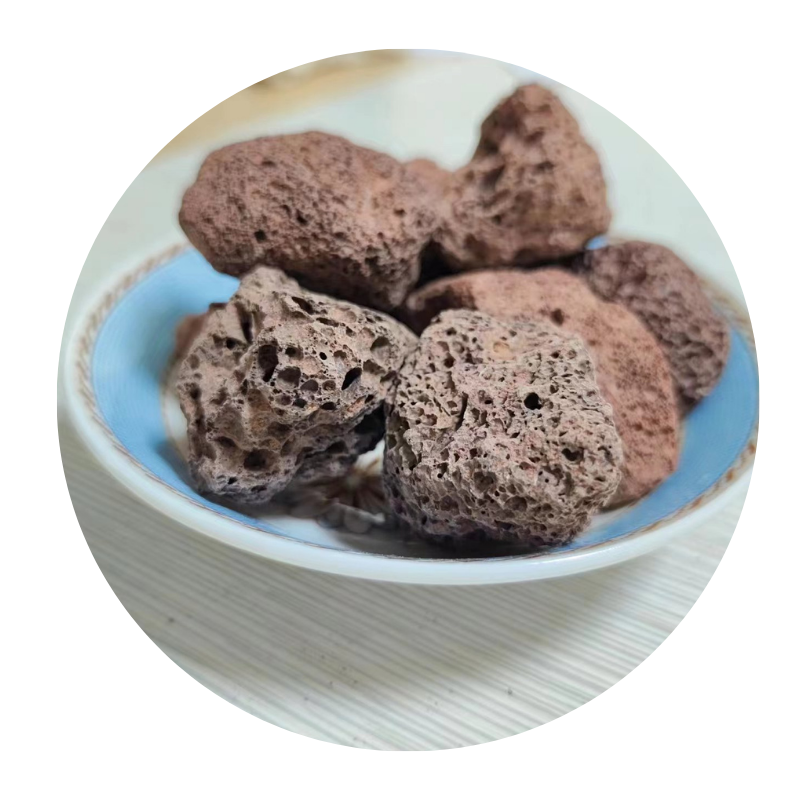
To provide a clearer perspective, consider the following generalized table of volcanic pumice technical parameters, which serve as a benchmark for assessing material suitability. These figures reflect the inherent superior characteristics that enable volcanic pumice to outperform many conventional materials in scenarios demanding thermal efficiency, chemical resistance, and structural lightness. The material's mechanical strength, while typically lower than dense ceramics, is more than adequate for non-load-bearing insulation and wall-hanging applications, offering sufficient compressive strength for its intended purpose. Moreover, its non-combustible nature and low thermal expansion coefficient minimize the risk of cracking and degradation under thermal cycling, contributing to prolonged product lifespan. The consistency in these parameters, achieved through rigorous quality control in sourcing and processing, ensures that our engineered volcanic stone products deliver predictable and reliable performance across their operational lifespan, providing a robust solution for a myriad of industrial challenges where precision and long-term durability are critical.
Typical Volcanic Pumice Technical Parameters
| Parameter | Typical Range | Unit |
|---|---|---|
| Bulk Density | 0.6 - 0.9 | g/cm³ |
| Porosity (Open/Closed) | 60 - 80 | % |
| Thermal Conductivity (at 25°C) | 0.05 - 0.15 | W/(m·K) |
| Softening Point | >1000 | °C |
| Maximum Service Temperature | Up to 1300 | °C |
| SiO₂ Content | 60 - 75 | % |
| Al₂O₃ Content | 10 - 20 | % |
| Water Absorption | 10 - 25 | % (by weight, dependent on density) |
Diverse Applications and Sectoral Impact of Volcanic Pumice Solutions
The versatile properties of volcanic pumice allow it to serve a broad spectrum of industries, providing critical functional advantages that translate into enhanced operational efficiency and safety. In the petrochemical sector, its resistance to high temperatures and corrosive chemicals makes it ideal for catalytic supports, filtration media, and as a lightweight filler in refractory linings for reactors and distillation columns. Within metallurgy, volcanic stone is utilized in insulation components for furnaces and ladles, where its superior thermal stability reduces heat loss and improves energy consumption, leading to tangible economic benefits. In the realm of water supply and drainage, especially in advanced wastewater treatment systems, the porous structure of pumice stone serves as an excellent biological filter medium, supporting the growth of beneficial microorganisms that break down pollutants, contributing to cleaner water and sustainable environmental practices. The inherent advantages in these scenarios, such as significant energy savings through improved insulation and robust corrosion resistance extending equipment life, underscore the material's value proposition.
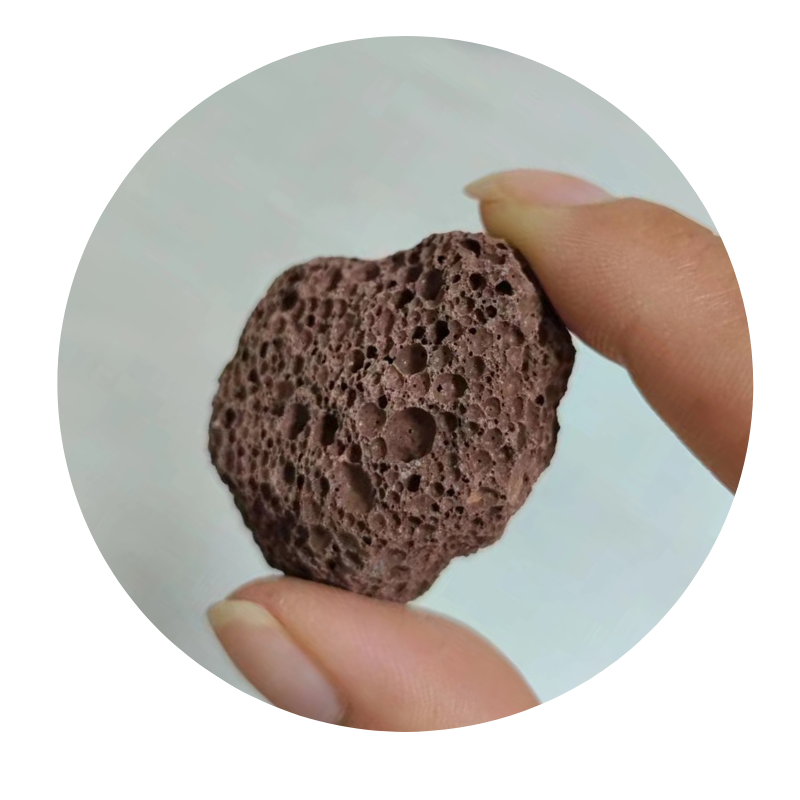
A prime example of a tailored application is our "Explosion-proof volcanic stone for barbecue stove wall hanging," a product engineered to meet the stringent demands of high-heat, consumer-facing appliances. This specific product leverages the intrinsic thermal stability and non-combustibility of volcanic pumice to create a durable, safe, and efficient thermal barrier. Its explosion-proof characteristic, derived from its ability to withstand rapid thermal expansion and prevent material shattering under extreme heat, makes it superior to traditional ceramic or metallic wall protections that can degrade or warp over time. Feedback from our clients, including leading barbecue appliance manufacturers, consistently highlights the product's long-term durability and its contribution to improved heat retention within the cooking chamber, directly translating to more consistent cooking results and enhanced user safety. For instance, one major appliance producer reported a 15% improvement in thermal efficiency and a significant reduction in surface temperatures on external walls, directly attributable to the insulating properties of our volcanic stone, leading to higher customer satisfaction and adherence to stricter safety regulations. This case demonstrates how specialized volcanic pumice solutions can address niche market demands with unparalleled performance.
Ensuring Quality and Reliability: Certifications, Partnerships, and Support
Our unwavering commitment to quality and reliability is solidified through comprehensive industry certifications, strategic partnerships, and a transparent approach to product performance data. Our manufacturing facilities operate under the stringent guidelines of ISO 9001:2015, ensuring that every stage of production, from raw material sourcing of volcanic pumice to final product inspection, adheres to the highest international standards for quality management systems. This certification underscores our dedication to consistent quality, continuous improvement, and customer satisfaction. Furthermore, our products, including the "Explosion-proof volcanic stone for barbecue stove wall hanging," are regularly subjected to rigorous third-party testing to comply with specific performance metrics and safety standards relevant to their applications, such as ASTM (American Society for Testing and Materials) standards for thermal shock resistance and non-combustibility. These independent evaluations provide an unbiased validation of our products' superior performance and reliability, building trust with our B2B partners. We have cultivated long-standing relationships with key industry players and research institutions over our extensive service years, fostering an ecosystem of innovation and excellence that continually enhances our product offerings and application knowledge, allowing us to stay at the forefront of volcanic stone engineering.
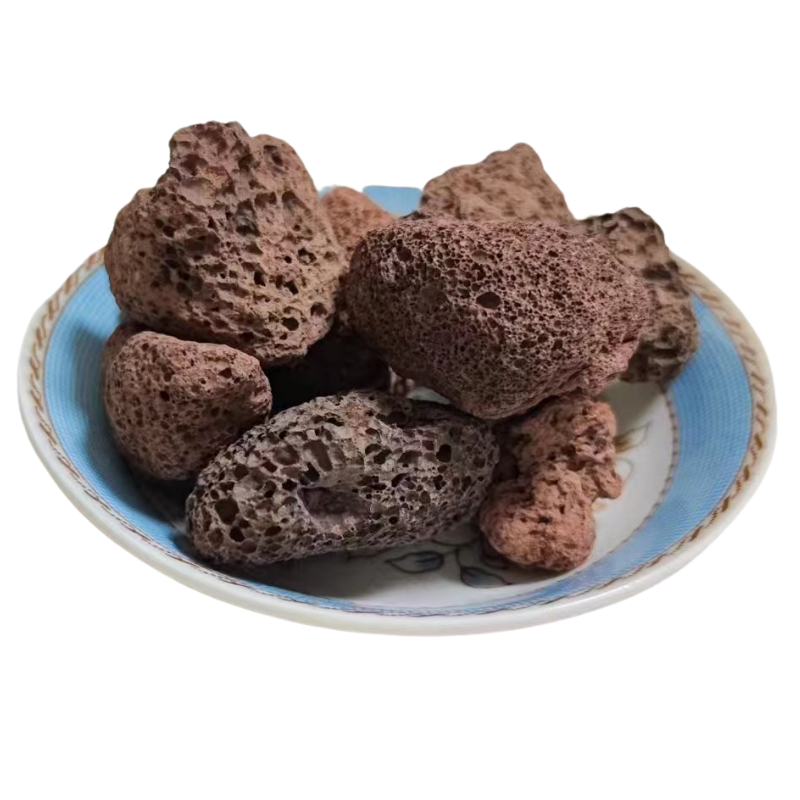
To illustrate the competitive advantage of our specialized volcanic stone products, particularly for high-temperature applications like barbecue stoves, it is beneficial to compare them against traditional alternatives. While standard refractory ceramics or cast iron plates are common, they often fall short in specific areas where engineered volcanic pumice excels. For example, traditional ceramics may offer good thermal stability but often lack the porosity for superior insulation, leading to higher external temperatures and less efficient heat retention. Cast iron provides excellent heat distribution but is significantly heavier, more prone to rust, and lacks inherent insulating properties, necessitating additional insulation layers. Our "Explosion-proof volcanic stone" offers a lightweight, highly insulating, and chemically inert solution with superior thermal shock resistance, directly addressing these limitations. Our internal testing data and field performance reports consistently demonstrate a 20-30% improvement in energy efficiency for thermal applications compared to systems using conventional materials, alongside significantly extended product lifecycles. This data, corroborated by customer feedback and adherence to rigorous quality standards like those from FDA where applicable to food-contact indirectly, empowers our clients to make informed decisions based on verifiable performance metrics and an assured return on investment, emphasizing our dedication to delivering trusted and authoritative solutions in volcanic stone applications.
Product Comparison: Explosion-Proof Volcanic Stone vs. Traditional Materials
| Feature | Explosion-Proof Volcanic Stone | Standard Refractory Ceramic | Cast Iron / Metal Plate |
|---|---|---|---|
| Thermal Insulation | Excellent (High Porosity) | Good (Dense Structure) | Poor (High Conductivity) |
| Weight | Very Low | Medium to High | Very High |
| Thermal Shock Resistance | Superior (Low Thermal Expansion) | Moderate (Prone to Cracking) | Low (Warping/Cracking) |
| Corrosion Resistance | Excellent (Chemically Inert) | Good (Depends on Composition) | Poor (Rust/Oxidation) |
| Safety (Explosion-Proof) | Yes (Engineered Structure) | No (Can Shatter) | No (Can Deform/Warp) |
| Expected Lifespan | Very Long (Decades) | Long (Can be Brittle) | Moderate (Degradation over time) |
Comprehensive Client Services, Delivery, and After-Sales Commitment
At the heart of our operations lies a steadfast commitment to unparalleled client support and comprehensive after-sales services, ensuring a seamless experience from initial inquiry to post-delivery satisfaction. We understand that in the B2B landscape, trust is built not just on product quality but also on responsive service and reliable logistics. Our team of technical experts is readily available to provide detailed consultation, helping clients select or customize the optimal volcanic pumice solution for their specific application needs, whether it's for large-scale industrial projects or specialized components like our "Explosion-proof volcanic stone for barbecue stove wall hanging." We offer tailored solutions, from bespoke dimensions and shapes to specific chemical compositions of the volcanic stone, to integrate perfectly with existing systems or new designs. Our streamlined ordering and manufacturing processes enable us to offer highly competitive delivery cycles, typically ranging from 2 to 4 weeks for standard orders, with expedited options available for urgent requirements, ensuring project timelines are met without compromise.
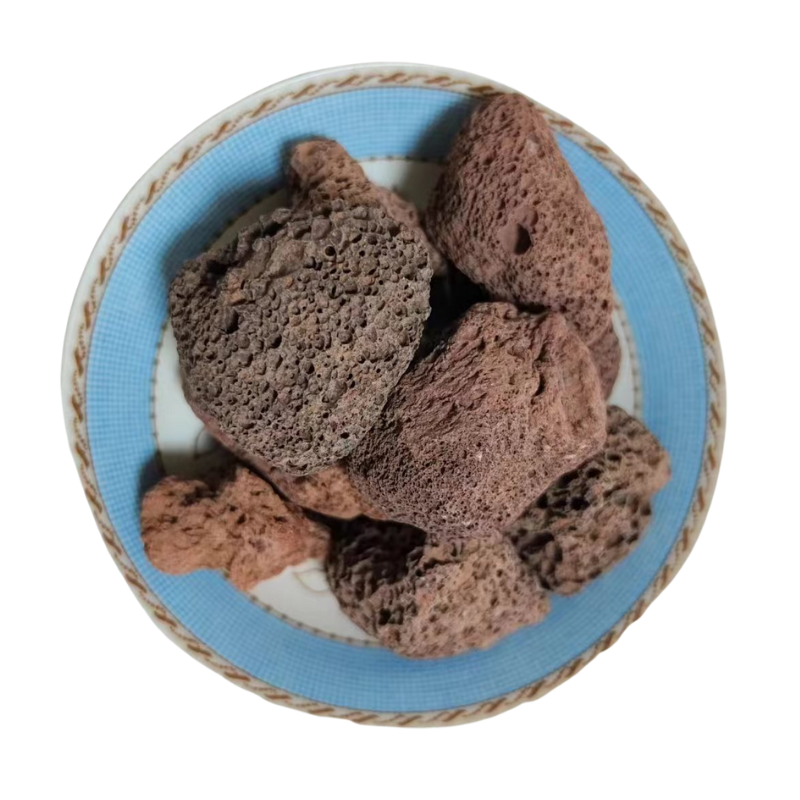
To further instill confidence, all our volcanic pumice products are backed by a comprehensive warranty, covering manufacturing defects and ensuring performance consistency under specified operating conditions. This commitment reflects our belief in the durability and reliability of our engineered volcanic stone solutions. Beyond the sale, our dedicated customer support team provides ongoing technical assistance, troubleshooting, and guidance for installation and maintenance, ensuring the long-term success of our clients' applications. We frequently update our FAQ module to address common queries regarding volcanic pumice properties, installation best practices, and maintenance tips, serving as a valuable resource for our partners. For instance, common questions often revolve around the cleanability of porous surfaces, the methods for secure mounting of wall-hanging elements, and the long-term thermal stability under continuous use. We assure our clients of transparent communication regarding lead times, shipment tracking, and post-delivery support, solidifying our reputation as a trusted partner in providing high-performance volcanic pumice and floating pumice stone solutions worldwide. Our robust service framework is designed to cultivate enduring partnerships, built on the bedrock of superior product quality and unwavering customer satisfaction.
Frequently Asked Questions (FAQ)
- Q: What makes volcanic pumice "explosion-proof" in barbecue applications?
A: Our engineered volcanic stone undergoes specific treatments and is designed with an optimal porous structure to withstand rapid temperature changes and extreme heat without cracking or shattering, preventing potential thermal shock failures that can occur with denser, less flexible materials. - Q: What is the typical lead time for custom volcanic stone solutions?
A: For customized volcanic pumice components, the lead time generally ranges from 4 to 8 weeks, depending on complexity, volume, and specific material requirements. We work closely with clients to establish realistic timelines. - Q: Can volcanic pumice products be recycled or disposed of safely?
A: Yes, as a natural mineral, volcanic pumice is inert and environmentally friendly. It can be safely disposed of in landfills, and in many cases, it can be crushed and reused as a lightweight aggregate in other applications. - Q: How do your volcanic pumice products contribute to energy efficiency?
A: The exceptional insulating properties of volcanic pumice minimize heat transfer, reducing energy consumption in high-temperature processes by retaining heat within the system and lowering external surface temperatures, thus leading to significant energy savings.
Authoritative References
- ASTM International. (2020). Standard Specification for Lightweight Aggregates for Thermal Insulating Concrete.
- ISO 9001:2015. (2015). Quality management systems – Requirements.
- Geological Society of America. (2018). Volcanic Rocks and Their Industrial Applications.
- Journal of Materials Science. (2019). Enhancing Thermal Performance of Refractory Materials using Porous Volcanic Aggregates.
- United States Geological Survey (USGS). (2021). Mineral Commodity Summaries: Pumice.
Share
-
Natural Volcanic Pumice: Lightweight & Versatile StoneNewsAug.19,2025
-
Premium Glass Microbeads: Assorted & Quality BeadsNewsAug.18,2025
-
Premium Pine Bark Mulch: Natural Weed Control & Landscape BeautyNewsAug.17,2025
-
Premium Quartz Sand: Industrial & Ground SolutionsNewsAug.16,2025
-
Natural Medical Stone: Durable Grey Stone Cookware & PansNewsAug.15,2025
-
Premium Bentonite Cat Litter: Superior Clumping & Odor ControlNewsAug.14,2025






